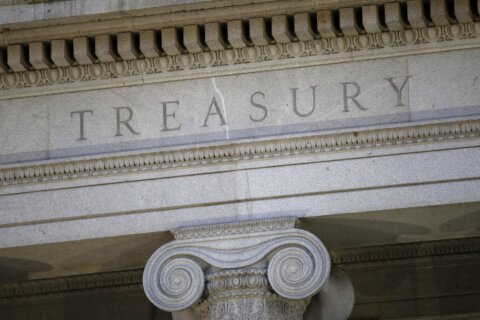It may not be enough for companies to make profits anymore. An increasing number of investors are incorporating their values into their long-term investing strategies through the lens of environmental, social and governance concerns, or ESG investing.
An increasing number of publicly traded companies are also using ESG principles in their corporate frameworks. ESG is a big trend and will continue to be part of a corporate structure moving forward as its relevance continues to grow. As the trend plays out, investors need ways to evaluate how companies perform from an ESG perspective. Some investment firms have stepped into this void to provide ESG scores for companies.
The environmental component of an ESG score considers a company’s carbon emissions, energy consumption and whether it is working to address climate change. The social component takes into account the diversity within the company and employee satisfaction. Last, the governance part evaluates the company’s board diversity, executive pay, corporate culture and business ethics, among other things.
ESG scores allow investors to determine whether a company is taking satisfactory actions to manage the business risks posed by ESG concerns. But the rating should not be used as a stand-alone metric. Here’s what you need to know about using ESG scores to help make investment decisions:
— What is an ESG score?
— How are ESG scores calculated?
— What is a good ESG score?
— ESG investment analysis.
[READ:Sign up for stock news with our Invested newsletter.]
What Is an ESG Score?
An ESG score is a rating that evaluates how sustainably a company is conducting business. A favorable ESG score could compel investors to invest in a company, either because investors see the company’s values as aligned with their own or because investors view the company as sufficiently shielded from future risks associated with issues such as pollution or poor corporate governance. A less-favorable ESG score may turn an investor who is concerned with ESG away from the company.
ESG scores are typically based on two factors: risk/opportunity exposure and performance, says Robert McConnaughey, senior vice president and head of investor relations advisory and community impact at Corbin Advisors. “If a company has a high exposure and performs well, that multiplied number can be a big score that impacts the letter grade,” he says.
The score allows investors to gauge the company’s intentions of how they treat their employees, how the board makes decisions or if they have environmental consciousness top of mind. A company facing a number of lawsuits over environmental or human resources practices, for example, may have a low score and may be seen as not upholding the integrity of the ESG model.
How Are ESG Scores Calculated?
ESG scores are calculated by companies that use their own formulas and methods to quantify and measure how well publicly traded companies are meeting ESG metrics. Assigning an ESG score allows investors to compare a company’s performance with industry peers and with companies from other sectors.
MSCI, for example, collects publicly available data relevant to a company’s exposure to industry-specific risks such as business activities, size of its operations and where it operates; assigns percentage weights to ESG risks; and compares a company to industry peers to get the ESG rating from AAA to CCC.
[See: 7 Top Solar Stocks for 2022]
What Is a Good ESG Score?
An MSCI rating of AAA represents a company managing its ESG issues particularly well.
An ESG risk rating from Sustainalytics, another major provider of ESG scores, can range from 0 to 40+, with 0 representing the lowest level of risk. Ultimately, the best rating by these agencies would mean the same thing: that a company is able to manage its ESG risks effectively and is a leader among its peers.
A company with a low or high ESG score or rating may signal to investors which company is doing better or worse from an ESG perspective. But just because a company has a less-than-glowing ESG score doesn’t necessarily mean it is a bad company. Within a particular industry, a company could be lagging in certain ESG metrics, but ESG scores don’t privilege one industry over another, says James Katz, founder and CEO of Humankind Investments, based in New York City. The metric is “trying to choose the company within an industry that in their view is doing something better from an ESG perspective,” he says.
Software company Microsoft Corp. (ticker: MSFT) has an MSCI ESG rating of AAA, which means it’s a leader among its peers within the software industry. Similarly, MSFT has a Sustainalytics ESG score of 13.8. This is a low ESG risk rating, which means the company’s exposure to ESG issues is small and the company is able to manage ESG issues within the company’s framework well.
Every company is vulnerable to ESG risks. Individual companies can manage certain ESG risks better than others, while some ESG risks cannot be completely managed. An oil and gas company may be able to control its board diversity and create opportunities for its employees, but it may not be able to generate a favorable score on the greenhouse emissions it produces through its operations.
An oil company can still have a good overall ESG score because of how the company is operated. Exxon Mobil Corp. (XOM), for example, is an oil company that exhibits forward-looking ESG practices. Its MSCI ESG rating is BBB, which is an average score, and its Sustainalytics ESG risk score is 32.4.
The major bank Wells Fargo & Co. (WFC) has an MSCI rating of BB, which is on the lower end of the average scale. The bank is a laggard because its corporate behavior, consumer protection and human capital development are not meeting peers’ governance standards. WFC has a Sustainalytics ESG score of 32.8, relatively high for a bank.
[SEE: 7 High-Dividend Stocks to Buy Under $10.]
ESG Investment Analysis
Taking an ESG approach to investing focuses on a company’s exposure to risks specific to the industry it is in, and it helps investors understand how a company is managing its risks relative to competitors. If you find that a company is not managing these risks appropriately, this could signal to investors a problem.
Companies that don’t manage ESG risks well could post market gains, and it can be equally true that companies with high ESG scores may underperform. This is to say that the ESG score by itself is not a strong indicator of market performance.
“The sustainability methodologies that exist are not a barometer of a company’s investment potential short term or long term,” says Joshua Kendall, head of Responsible Investment Research and Stewardship at Insight Investment in the U.K.
While ESG information can be helpful when assessed along with other metrics, investors should not solely rely on sustainability information to guide their investment analysis. Rather, Kendall says, ESG factors are only part of the investment decision-making processes.
“The jury is still out on whether higher ESG scores will lead to higher investment returns,” Katz explains. However, there are merits to investing with an ESG approach that may help investors identify valuable long-term investments.
A company can be profitable now, but if it doesn’t have a record of treating its employees fairly, that company may not be able to stay profitable over time. Rather, for a company that has reputable governance practices and values its customers and employees, there can be a “positive feedback loop,” Katz says.
“Over the long run, sustainability will win out. However, over the short term, any company can potentially have poor ESG practices and still be a strong investment opportunity,” Kendall explains.
More from U.S. News
9 Best Pharmaceutical Stocks to Buy for Income
7 Best Cheap Stocks to Buy Under $10
3 Blockchain Investments That Compete With Ethereum
ESG Investing 101: What is an ESG Score? originally appeared on usnews.com







